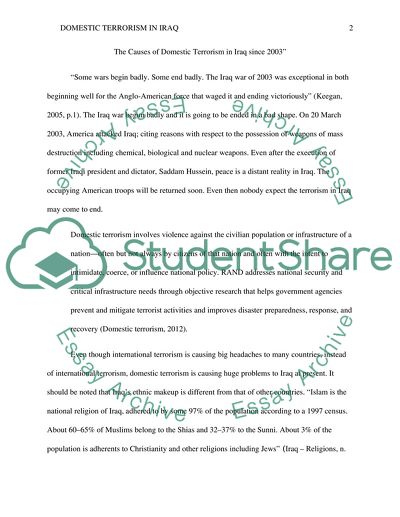Cite this document
(The Causes of Domestic Terrorism in Iraq since 2003 Research Paper, n.d.)
The Causes of Domestic Terrorism in Iraq since 2003 Research Paper. Retrieved from https://studentshare.org/military/1790962-the-causes-of-domestic-terrorism-in-iraq-since-2003
The Causes of Domestic Terrorism in Iraq since 2003 Research Paper. Retrieved from https://studentshare.org/military/1790962-the-causes-of-domestic-terrorism-in-iraq-since-2003
(The Causes of Domestic Terrorism in Iraq since 2003 Research Paper)
The Causes of Domestic Terrorism in Iraq since 2003 Research Paper. https://studentshare.org/military/1790962-the-causes-of-domestic-terrorism-in-iraq-since-2003.
The Causes of Domestic Terrorism in Iraq since 2003 Research Paper. https://studentshare.org/military/1790962-the-causes-of-domestic-terrorism-in-iraq-since-2003.
“The Causes of Domestic Terrorism in Iraq since 2003 Research Paper”, n.d. https://studentshare.org/military/1790962-the-causes-of-domestic-terrorism-in-iraq-since-2003.


